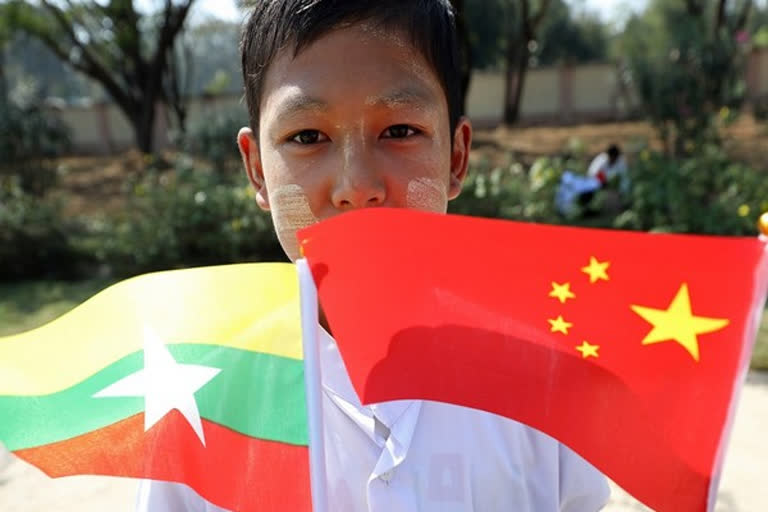Chiang Mai:After a military coup in Myanmar on February 1, China is again poised to be the "friend in need" it has always been in times of crisis for the country, reported Asia Times.
Among the major projects that were on the table before the coup are a new railroad linking the Chinese border town of Ruili with Mandalay in Myanmar, and a China-financed deep-sea port at Kyaukpyu on the Bay of Bengal, which already also serves as a terminus for oil and gas pipelines that reach across Myanmar and flow into China's southern Yunnan province, reported Asia Times.
Chinese Foreign Ministry spokesman Wang Wenbin, at a news briefing on February 1 hours after Myanmar's elected government members were detained, said Beijing "noted what has happened in Myanmar and are in the process of further understanding the situation."
He then went on to say that "all sides in Myanmar" should "appropriately handle their differences under the constitution and legal framework" for "political and social stability to be maintained."
Meanwhile, the US President Joe Biden's administration quickly threatened to impose new punitive sanctions on Myanmar's coup-makers.
Read:|Resistance grows after Myanmar junta blocks FB
Bertil Lintner, writing in an opinion piece in Asia Times viewed the Chinese move as a continuation of their support to the Myanmar military. China has already come to the defence of Myanmar's coup-makers and will likely see its interests grow under the new era of military rule, he wrote.
China has been utilising the situation with utmost care to save its investments in Myanmar. Earlier also, China has helped Myanmar in its previous outrages, including the Rohingya refugee crisis that was condemned by the West. China had helped Myanmar after the Rohingya refugee crisis in 2016-2017, reported Asia Times.
At that time, Aung San Suu Kyi's now-ousted National League for Democracy (NLD) was in power. Beijing had cosied up to her and her party before the coup because its policymakers and business groups found it easier to deal with them than the staunchly nationalistic military, known as the Tatmadaw, reported Asia Times.
Myanmar, under Suu Kyi, joined China's Belt and Road Initiative (BRI) when Suu Kyi attended a forum for International Cooperation in Beijing in May 2017. The two countries then signed a memorandum of understanding to jointly build the China-Myanmar Economic Corridor (CMEC) in 2018, aiming to further enhance bilateral cooperation within the BRI's framework, reported Asia Times.
